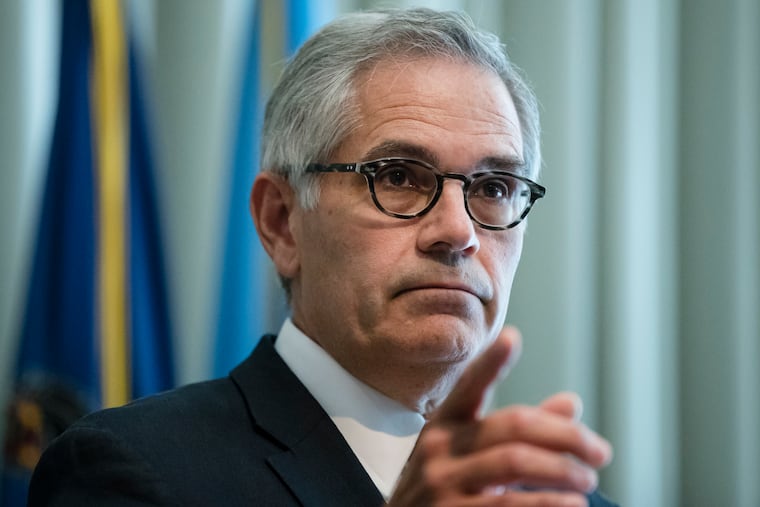Ex-Philly cop Ryan Pownall’s homicide charge puts police accountability in the spotlight | Editorial
In this era of strained relations between law enforcement and the community, it's essential to give as much information to the public as possible to help it understand and react to events – especially to give insight into the complex relationships between police and the communities they protect.

Police cannot be above the very laws they are sworn to uphold. When District Attorney Larry Krasner announced homicide and other charges against former police officer Ryan Pownall on Tuesday, he rightly noted that holding police accountable for reckless, deadly behavior was long overdue.
Even though Philadelphia police have shot and killed 50 people since 2010, the last time an officer was actually charged with homicide was 1999. Two judges swiftly dismissed charges against Christopher DiPasquale in the death of Donta Dawson, though the case remained controversial, including an appeal to the Superior Court.
Since the 2014 Ferguson, Mo., shooting of an unarmed black teenager by a white officer, there has been a national outcry for greater scrutiny of police-involved shootings of black men to determine whether they are justified.
Krasner reflects that movement. As a candidate in 2017, he promised to hold police accountable for unjustified shootings. So as he takes on his first police shooting, he is being very careful, as he should be. His office not only performed its own investigation but used a grand jury to conduct a separate investigation. Both came to the same conclusion: Pownall used excessive force when he killed 30-year-old David Jones.
In June 2017, Pownall, who is white, stopped Jones, who was black, for riding a dirt bike. Pownall frisked Jones and found a gun. In a scuffle, Jones tossed the gun and ran. He was no longer a danger to Pownall, who nonetheless shot him in the back twice. The second shot struck his heart, killing him.
It took the grand jury a year to finish its work. That's a long time, but consider that the presentment is a public document, open to public examination and criticism. In this era of strained relations between law enforcement and the community, it's essential to give as much information as possible to the public to help it understand and react to events — especially to give insight into the complex relationship between police and the communities they protect.
Pownall's preliminary hearing is scheduled for Sept. 19. If a judge finds there is enough evidence to hold him for trial, Pownall will have a chance to plead his case. The prosecution will have to prove Pownall should be convicted.
Convictions of police are rare. Since 2005, just six non-federal police officers have been convicted of murder for unjustified shootings, including a Texas officer convicted last month. Four of those convictions were overturned, according to data compiled at Bowling Green State University.
In Philadelphia, police-involved shootings have gone down from a recent high of 59 in 2012 to 14 in 2017. There have been four lethal shootings this year; legal findings in those cases are pending.
The outcome of the Pownall case, no doubt, will set a tone for future cases.
Regardless of which side wins or loses, it should always be clear that police must be accountable for their actions, especially when those actions lead to death. The pursuit of justice cannot be rare. Let the system work.